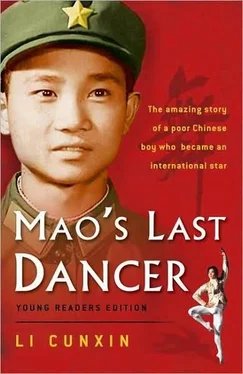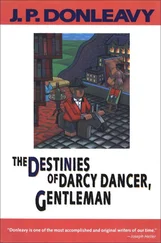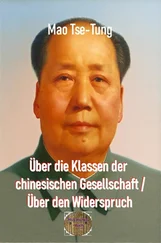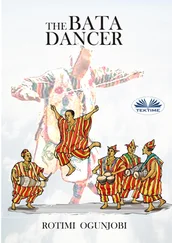I always volunteered to help Niang push the windbox on those nights. I dearly wanted to stay on the kang to feast on her delicious food with the rest of the family, but even more I wanted to be with my niang on this special night. I didn't want her to be cooking alone. She would bubble with happiness while she cooked. "Da kai huo tao. Rang ta tiao wu." Let the flame dance now, she would say. Or, "Rang huo tao man xia lai." Slow down the fire, let it simmer. Even pushing the windbox was fun.
That night we would use black coal, not half-burnt coal, and the flame would flare immediately with each push and pull of the windbox. I often wondered if the god of fire, if there was one, was happy that particular night. I wished he would be happy all the time.
Everything was special and magical that night. Each dish tasted better than the previous one served. Everyone chatted enthusiastically, but the one who talked the most that night was our dia. Happiness filled up everyone's hearts. We would forget hardship. We felt privileged. There were always too many dishes to fit on the wooden tray and many would end up on the kang. I wondered why we didn't spread these delicious dishes throughout the year. How much could we eat in one night?
The meal always ended with steaming pork-and-cabbage dumplings, all handmade by our niang. They looked precious and smelt exquisite! I always saved plenty of room for them. They truly were a labour of love. Our niang would put a one-fen coin into a dumpling and whoever found it was destined to have luck throughout the year. One year nobody found that fen, even though our niang swore she'd put it in. Did someone eat it without even noticing? we asked. Nobody was surprised. We swallowed those dumplings as if we were wolves.
The very first bowl of dumplings to be served was lucky food, for the gods of the kitchen, of harvest, prosperity, long life and happiness. The second bowl of dumplings was for our ancestors. Before our niang placed each bowl of dumplings at the centre of the table, with incense on either side, she would pour some broth onto the ground in four directions. "Gods, my kind gods," she would murmur, "please eat our humble food. We are blessed by your generosity." The square table was always placed in the middle of the room, against the northern wall. Before Chairman Mao and the Cultural Revolution we would have displayed a family tree and a picture of the god of fortune too, on the wall just above the table. But this was an old tradition now, a threat to communist beliefs. Any family doing this would be regarded as counter-revolutionary and there were heavy penalties, including jail.
Nobody was to touch those dumplings my niang left at the centre of the table, but they always mysteriously disappeared overnight. "The gods and our ancestors have eaten them," our niang would say. I thought this was incredible, and believed her wholeheartedly.
After the meal we would go from house to house to pay our respects and wish everyone a happy and prosperous New Year. Every gate in the village was wide open. Nobody was supposed to sleep. We would play tricks on our friends if we caught any of them sleeping. Once we tied a firecracker to a friend's ankles and when he moved his legs in his sleep the firecracker went off and gave him a dreadful fright.
After midnight, firecrackers could be heard everywhere and would last throughout the night. Thousands of small red-and-white pieces of firecracker paper splattered around the streets. Many of the firecrackers we made ourselves. My favourite was the "double kicker". It was as long as an adult's finger, and once we lit it the first explosion happened in our hand and it would shoot off for about ten or fifteen yards, when the second explosion would go off.
On New Year's Day we would sleep until midmorning. Everyone was exhausted, but nobody cared. The holiday spirit lived on.
On alternate years, we went to one of our aunties' houses on New Year's Day. I loved my aunts, but my youngest auntie's house had more action, and the meals in her house would sometimes last for three or four hours. She was a beautiful lady and a good cook, with three girls and a boy, and a husband who would sing and tell us stories. He was one of the best furniture painters in Qingdao. Often he would tell us about the knowledge and tradition behind painting a piece of wood. He was very funny. He loved drinking rice wine and once he'd had one small glass his voice would rise an octave and he would begin to sing tunes from some of the old Beijing Operas. He also had many photos of himself taken in different cities around China. I loved looking at them. It was unusual for a person to travel so much in China then. Most people never left the city they were born in, but because of my uncle's painting skills he was invited to attend painting seminars throughout China. I was fascinated by these beautiful photos, by the places he'd been to. We only had a few photos in our house, and I asked my parents why. "You will lose a layer of skin with each photo taken," our dia replied, "and you only have so many layers of skin to lose before you die."
"Then why did my uncle have so many pictures taken? He is still alive and well," I asked.
"Just wait," our dia would say ominously.
Our niang always sighed upon hearing our dia's explanation. She knew we were simply too poor to afford them.
The second day of the New Year was the day we farewelled our ancestors. We would light lanterns and incense and show our ancestors the way back to their graves. We would shower them with more symbolic food, drink and money, and wish them a year of good fortune and peace.
On the third day of the New Year, married daughters would visit their families. Our niang would take two or three sons with her, dressed up in our best clothes, and she would make a huge fuss about how we should behave. She took two basketfuls of bread rolls for her father and eldest brother. This was an important day for her. It was as though she had to show her family how well she'd done being married to the Li family.
We left our house before half past seven in the morning to catch the eight o'clock bus to the city. The rickety old bus was always crowded with people squeezed tightly in. We often sat on each other's laps for the one-hour trip because the elderly always had first preference for seats, and the old bus clucked and chuckled along so slowly that it seemed as if the wheels would fall off or the engine would stop any minute. The bus door had to be pulled hard to open and shut it. At each stop, people pushed their way on or off, but many people couldn't get on at all because there was no room and many missed their stops altogether. One time we all had to walk because the bus really did break down halfway there. When the next bus arrived an hour later, it was as full as the bus we'd just been on.
After our niang's mother passed away, her father married a country girl the same age as our niang and moved his family to Qingdao City. Better times had come for him. He was a carpenter. The city people could afford to pay more than the country peasants for his carpentry work.
My grandfather's place was on the top floor of a very old three- storey concrete building that looked as though it would crumble any time. The stairs were badly chipped, and it probably hadn't been painted since the day it was built. His apartment had two small rooms. My grandparents' room was the slightly larger room, and our niang's stepbrother and stepsister slept in another room on a tiny double bed made by my grandfather. There was no storage space. Clothes and other things had to go under their beds or hang from the ceiling or be kept under a piece of plastic outside.
About twenty families on their floor shared one bathroom for men and one for women. Both bathrooms had two toilets-concrete holes in the ground-and they always smelt dreadfully, even from my grandparents' apartment and theirs was the furthest away! I couldn't imagine how much worse the smell would be in summer. We only visited during the Chinese New Year when the weather was cold. One of the toilet holes at least, sometimes both, was blocked and occasionally all the overflowing shitty stuff even froze to the steps. I would always find an excuse to disappear onto the streets when I was desperate for a wee.
Читать дальше












